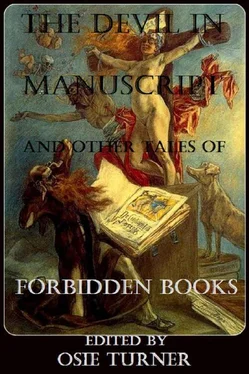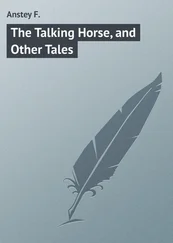It was during those ill-fated days that college professors, school-teachers, and literary critics began to run amuck. There was poor old Professor Brent of the university, for instance—Professor Brent who had written so many sugar-coated essays on the brotherhood of man. Who would have thought it possible that this kindly old fellow—this senile optimist whose work had always been well sweetened before it went to press—should attempt to do away with a whole class of college students one bright spring morning? And yet one had to believe it. There it was in the papers, with a host of other incomprehensible crimes as well.
But perhaps the Southern States suffered most of all. Of late years lynching parties had been rather few and far between; now they happened again with almost machinelike regularity. Scarcely a day passed in any of those towns on the other side of the Mason and Dixon’s line when some negro did not dance out his life at the end of a rope. And the leaders of these lynching parties—the men who adjusted the noose about the cowering wretch’s neck or lit the fagots which had been piled up against his knees—were invariably men of keen sensibilities and higher education—men who would have shrunk from such a task a few months before.
As this crimson wave passed over the country, leaving horror and desolation in its track, the creative thinkers, who had as yet remained untouched, began to ask themselves a multitude of questions: What would be the final outcome of this catastrophe? If the higher type of intelligence fell victim to this homicidal mania, what could one expect from the illiterate, unimaginative masses who were born to follow like so many sheep? For the first time in human history, education had joined hands with crime. What would be the final denouement? Possibly we were now facing the end of the world—a bloody end of order, a return to those primeval days when every man’s hand was raised against the other.
It was during these days of dark despair, days when our modern civilization seemed tottering in the balance, that a young man gained access to the chief of the New York police force and pointed out a simple cure which had been overlooked by all the criminal experts.
Wilbur Huntington, for it was he, had some difficulty at first in securing an interview. The chief of police, on account of the many attempts made on his life, was taking no more chances with strangers. If Huntington’s family had not been so prominent in the city, so influential in political circles, it is doubtful if Wilbur would have been able to gain access to that official’s office. As it was, the meeting was arranged and the following conversation took place:
“Well, what can I do for you?” asked the chief, fixing a vigilant eye on his visitor.
“I came to see you about this crime wave.”
“Well?”
“You want these murders stopped, don’t you?” Wilbur asked simply.
For the first time in many days the chief burst out into a laugh. “Of course!” he answered.
“Well, I know how to stop them—or at least, the great majority.”
Now the chief regarded his visitor with a look of fatherly pity, a look which seemed to say: “Too bad, too bad! Another madman to deal with. I’d better humor him a bit.”
“It will be all right, Mr. Huntington,” he said aloud. “Don’t you worry your poor head about it. Just you go home and—”
But at this point, Wilbur interrupted him by stepping forward and placing a book bound in red morocco on his desk. “Here’s the root of the whole matter,” he declared.
“My dear young man,” the chief said wearily, “I can’t be bothered by this sort of thing. The State pays competent men to—”
But again Wilbur broke in upon him with scant ceremony. “I know you think I’m a crank!” he cried. “But I’m going to prove that I’m not. Will you give me five minutes of your time?”
The chief glanced at his office clock and nodded. “Fire away,” said he. “Five minutes and no more.”
“Students of crime know that a diseased brain often prompts murder,” Huntington began quickly. “Yesterday I visited the homes of the fifty murderers who were apprehended in this city last week and in forty-five of them I found the book which I have just placed on your desk. Are you familiar with it? It is called ‘The Confessions of Constantine.’”
“No,” the chief answered, becoming interested in spite of himself. “But how can a book have anything to do with crime? It was merely coincidence that you found it in their homes.”
“Perhaps,” Huntington agreed. “But a book such as this can incite crime and I’m going to prove it. You, yourself, must have noticed that if an unusual murder is committed, is given publicity by the press, other murders of almost identically the same nature are sure to follow. What causes these other crimes? The answer seems obvious—mental suggestion; or, in other words, a printed description of the ghastly details which appeals to the brutal instinct in man.”
“Very well put,” the chief said approvingly, a note of respect creeping into his voice. “I had never thought of such a thing, but it sounds quite plausible. And you think this book could possibly”
“I know it!” Wilbur broke in. “Just think, chief. If the description of a murder crudely written by some inartistic cub reporter can excite crime, what could not a book like ‘The Confessions of Constantine’ accomplish? It is a work of undoubted genius and gives one a vivid portrayal of both the murder and the sensations of bloodlust in the brain of the murderer. Why, this book can overmaster the sensitive dreamer; can hypnotize him into crime as though by the beckoning of a bloodstained finger! And here is another clue which should not be overlooked: All of these assassins are inveterate readers who live their real lives between the covers of countless books. Such people can be ruled by the printed words of a genius. A sensitive bookworm is easily excited to laughter or tears by a well-written story, so why can he not be excited to brute rage as well?”
“There is a great deal in what you say,” the chief admitted. “I read quite a bit myself. Do you think this book would have any effect on me?”
“No doubt,” Huntington replied. He picked up “The Confessions of Constantino” and opened it at random. “Read this short chapter,” he said, handing the book to the official. “See how it affects you.”
The chief, impressed in spite of himself by his guest’s bizarre theory, glanced at the page Huntington indicated. Then, as Wilbur told me afterward, his attention became riveted on the book, the veins on his forehead bulged out, and a strangely sinister look crept into his eyes. Breathing heavily like a man running a race, he read page after page. At last Huntington touched him on the shoulder. Then he looked up dazedly, the whites of his eyes threaded with crimson veins.
“What is it?” he asked thickly.
But before Wilbur could answer him, the chief shook off the insidious atmosphere of the book and was himself once more. “By Heaven, you’re right!” he cried, springing to his feet. “I felt like a murderer myself just now!”
“If it could affect you that way,” Huntington said, “imagine how it would affect a nervous, high-strung man who has an enemy or a dull, brutish man who has a wrong to avenge! It seems to me that it would overthrow the brain of the one and feed the roaring beast in the other, till both would one day break through the bars of civilization!”
“You’re right!” the chief repeated. “You’re undoubtedly right! I can still feel the brute in me licking its lips. But what can we do? This murder propaganda is scattered all over the world by now.”
“That is your problem,” Huntington said, rising. “No doubt ‘The Confessions of Constantine’ can be traced through the Brainsworth Company and the various stores. Have the book condemned by the government, secure every copy printed, apply some kerosene and a lighted match—that’s my advice. You’ll soon find that, after ‘The Confessions of Constantine’ is done away with, this murder microbe will no longer be a menace to society. Good afternoon.”
Читать дальше












